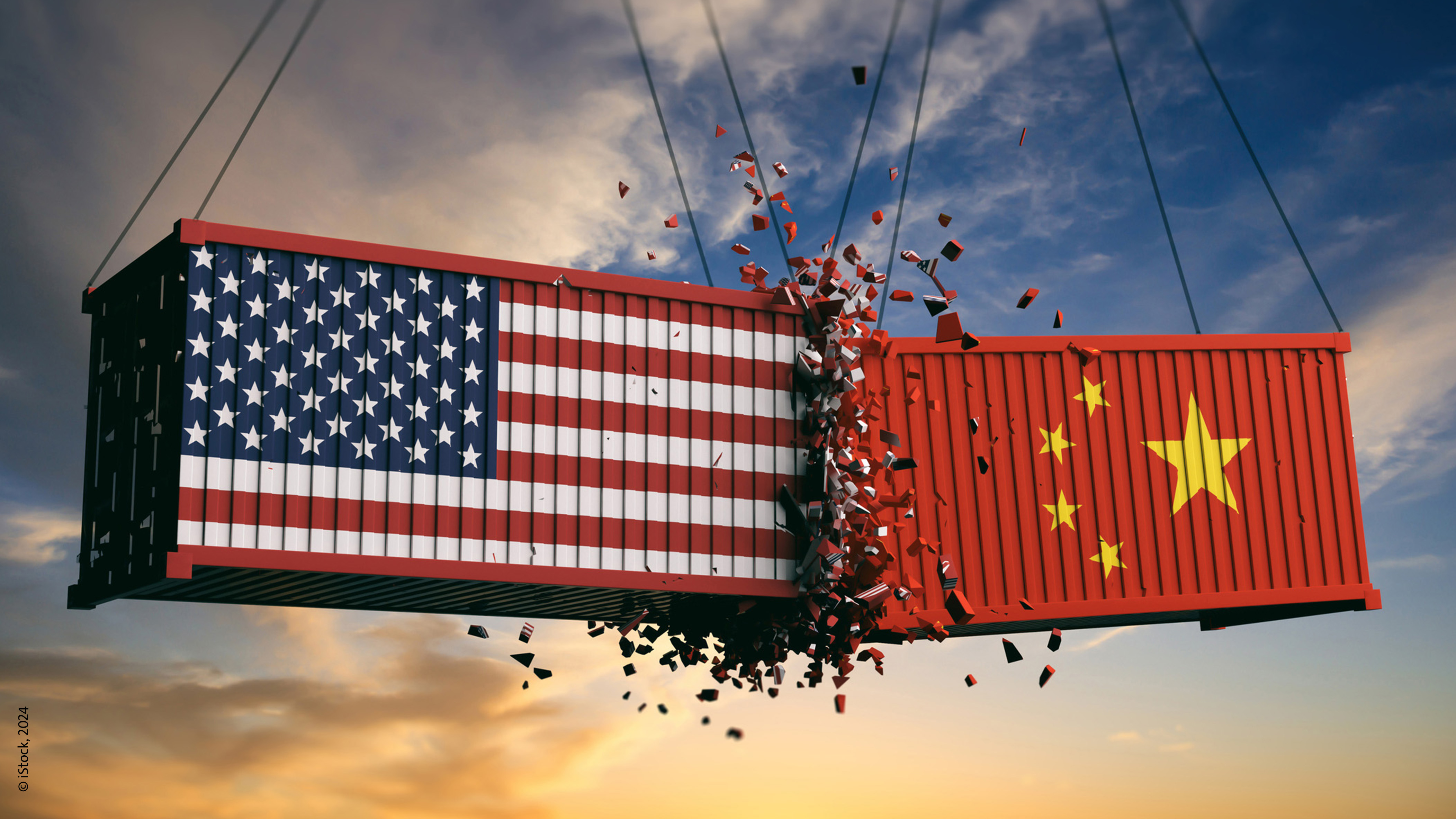Navigation auf uzh.ch
Navigation auf uzh.ch
How did Donald Trump and the Republican Party benefit from the trade wars between 2018-2019? David Dorn and his co-authors shed some light on what really went down in the heartland of the U.S.

A new comprehensive study by David Dorn, UBS Foundation Professor of Globalization and Labor Markets of the Department of Economics, and his colleagues David Autor, Anne Beck, and Gordon Hanson, examines the nuanced impacts of the 2018-2019 trade war involving the United States, China, and other trade partners, revealing complex economic and political outcomes.
Initial outcome was not as intended… or promised
Economically, the trade war did not benefit the U.S. heartland as intended. Import tariffs failed to significantly alter employment levels in newly protected sectors, while retaliatory tariffs had a distinctly negative effect, particularly in agriculture. Partial mitigation came from U.S. agricultural subsidies, but these measures fell short of fully compensating the losses. Politically, however, the trade war proved advantageous for the Republican Party.
Capitalizing on a platform of protectionism and economic nationalism
Regions more exposed to import tariffs saw a shift in political allegiance, with residents becoming less likely to identify as Democrats, more supportive of Donald Trump’s re-election in 2020, and more inclined to elect Republicans to Congress. The negative effects of foreign retaliatory tariffs only slightly diminished this political realignment. The analysis reveals a strengthening of anti-trade sentiments and an increase in Republican party affiliation in regions newly protected by trade policies. As a result, these shifts were reflected in electoral outcomes, where Republican votes surged in both congressional and presidential elections in areas receiving greater import tariff protection and larger farm subsidies.
Analyzing employment and voting outcomes, the authors found Republican gains were higher where tariffs and subsidies improved employment. Republican votes however reacted more strongly to local tariff exposure than employment rates, suggesting that voters in import-competing locations may have valued the tariff measures as a sign of political solidarity with the working class, rather than due to their employment impacts.
While the objective of revitalizing employment in the heartland proved challenging to achieve, voters in regions most impacted by Chinese import competition during the 1990s and 2000s were notably inclined to endorse the Trump administration for its tariff strategy.